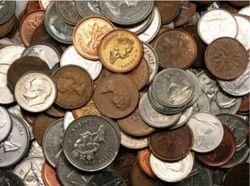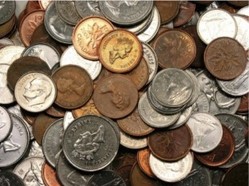Here's a neat budgeting idea from Lucas Carroll. It will help you keep to your budget and prevent you from over spending. With some tweeks I'm sure you could modify it to suit any budget goal.
Recently I've been inspired by a couple of friends who have started to wean themselves off of cigarettes in an attempt to save money. I've been watching the process and noticed the power of having something fun to save towards. Here are some ideas you can use to put smoking in its proper context.  To continue on with my last post from Sunday, here are some of the rest of the great practical suggestions from the query I posted on my personal Facebook account asking for budget and saving tips.
5) Tomas linked me to a fantastic website called Budget Bytes, which contains a lot of very delicious and very cheap recipes for those of you trying to save money on meals. 6) Yana echoed AJ's suggestion - urging us to run to work when we can and shop at second hand/thrift stores. She also added that we should do a type of self-consolidation by transferring high interest credit card ballances to lower interest lines of credit. 7) Matthew gave a great tip for saving on electricity. He shared his own personal method of plugging all of his electronics in a room into one single surge protector/power bar. At night, or whenever he leaves the room, he unplugs the bar. On average the TVs and other electronic devices in your home increase your power bill about 10% just by being plugged in over night. That is quite a few pennies! Again, thank you to all of my friends who contributed.  Recently I put a request out on my Facebook page for some savings tips from my friends. I received a lot of great ideas. Here are some of the best.
1) Tasha suggested doing your budget based on how often you get paid. For example, if you get paid bi-weekly create a bi-weekly budget. All of your excess/spending money should be taken out in cash which will help keep everything straight in your head. 2) Lindy added the timeless wisdom of preparing your lunches in advance and packing your own Thermos of tea or coffee instead of going to Tim Horton's or Starbucks. 3) A.J. suggested stocking up on sale items you know you will use regularly, and only buy clothes from second hand stores when possible. She also suggested riding your bike as often as possible in the summer. (Editor's note: I suggest if you want to do this that you save all of your gas receipts and compare them at the end of the year to see how much you saved during the months you rode your bicycle. I did this personally last year and the result was quite eye-opening.) 4) Julian reccommended adding a "savings" heading in your budget. Treat it as an expense and go through your budget and look for any unneccessary extra spending you can cut to increase the amount you can "spend" on savings. For time and space reasons I will stop here for now. Look for the second set of reccommmendations coming soon. Thanks to everyone who contributed their ideas. So now that you have your budget prepared, how do you make sure you keep your budget? Discipline helps, but what helps more is envelope budgeting. Many truly wealthy people (not just those pretending to be wealthy) only carry as much cash as they need to make the purchases they want. Most of the rest of us forget how much we've spent/owe and end up buying things with money we didn't realize we had already spent or need to spend. Envelopes or "money jars" or whatever tool you use can really help. The following video explains how. We saw a couple of posts ago a video by Dave Ramsey on the 7 Baby Steps to becoming financially independent. I've been talking with a lot of people about saving $1000 recently and most of them tell me the same thing: I don't have any money. Now, considering I know they work full-time I know that's not true, especially since I'm only talking to them about saving $25/mo (I've been saving $25/mo or more since I was 17 and the minimum wage was only $5.90/hr). The truth is, they don't know where to find the $25/mo because they aren't monitoring their spending. In the following video financial planner, Lamont Stewart, explains the basics about how to make a budget. Bonus points if you can find the math error. I'll finish off the post with one quick and easy tip I heard somewhere for setting up a budget: Live and spend normally for a month, but save every receipt in a shoe box. At the end of the month divide all of the expenditures into the various categories Lamont wrote on the white board. These should be your starting amounts for your budget. Now you can adjust accordingly to make a balanced budget (i.e., "positive cash flow").
|
 RSS Feed
RSS Feed